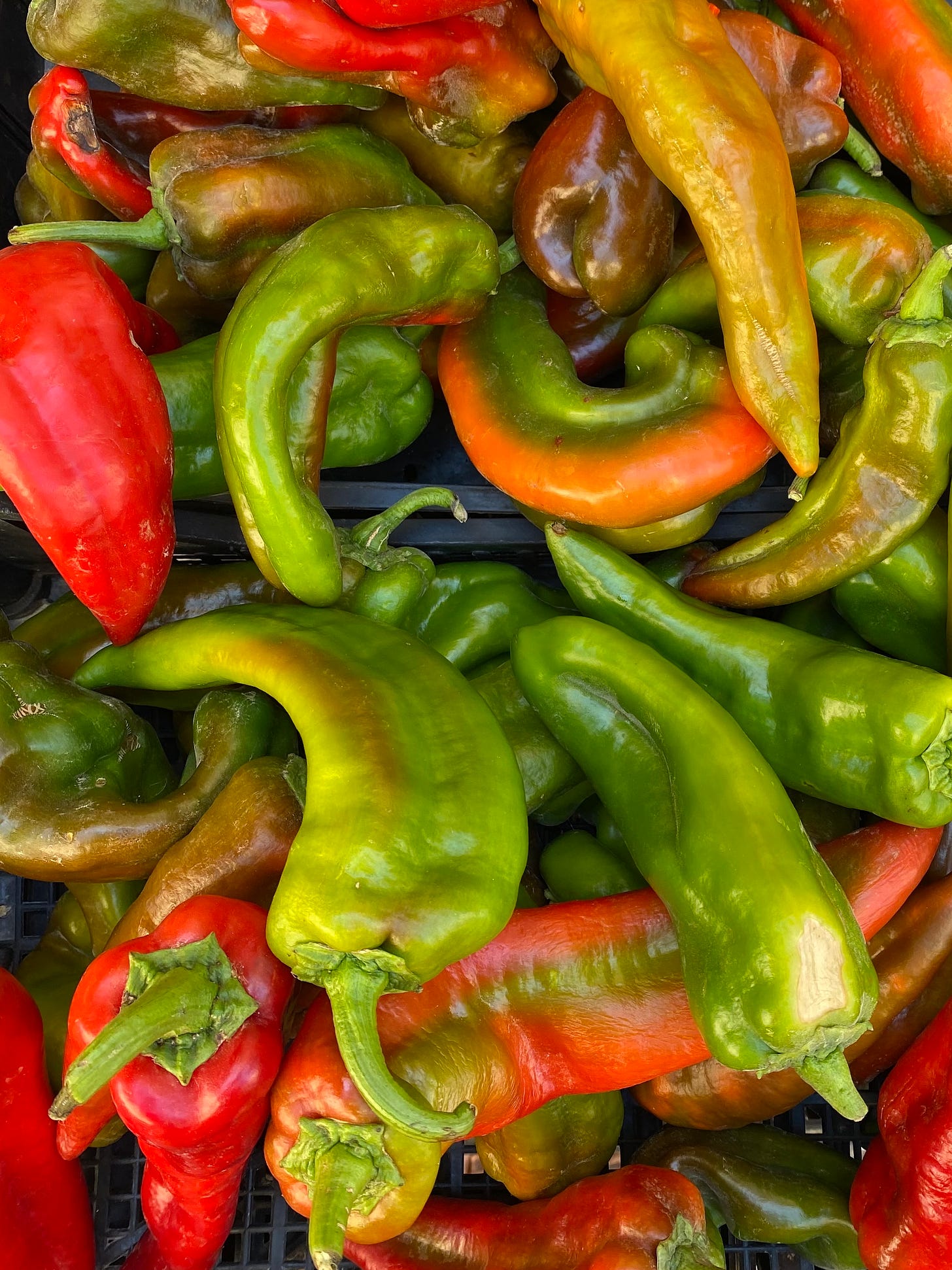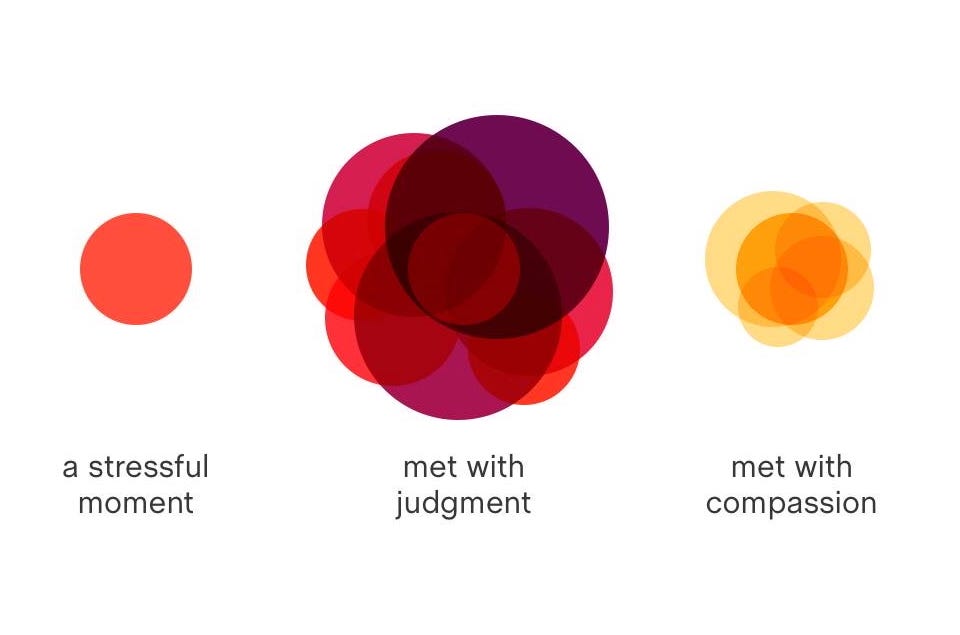Aggression is contagious. Courage is, too.
The world's a stage for unprocessed fear. Here's how we break the cycle.
"Vengeance is a lazy form of grief."
Tara Brach
Friends,
The world has become a stage for unprocessed fear.
Strongmen have always played an outsized role in history, but today we're all watching the show in real-time, through the glowing portals in our pockets. From Moscow to Mar-a-Lago, we're captivated by leaders whose insecurities erupt as aggression: men (yes, almost always men) who display "strength" by humiliating others, their sense of lack fueling an insatiable grasp for control.
The most disturbing part? We still conflate this theater of dominance with leadership.
Over the last few, weeks I've been fixated on aggression—its roots, spread, and devastating global consequences. Watching " leaders" in the U.S. assert a foreign policy called AMERICA FIRST (what could be more aggressive than prioritizing one country at the expense of all others?) has left me reeling.
What if our leaders could feel the emotions rising in their bodies before lashing out?
What if they practiced breathing before speaking?
What if they saw their role as getting it right, not being right!? (h/t to Brene Brown for this beautiful distinction)
In searching for ways to break our collective addiction to aggression, all roads lead to the same truth: it's an inside job.
In Tibetan Buddhism, the pattern of escalating aggression has a name: shenpa. It's that persistent sense of wanting things to go our way and the chain reaction when they don't. Perhaps this sounds familiar?! Something pushes our button and suddenly, we're hooked. Chest tightens, heat rises, breath thins, thoughts proliferate. And before we realized it’s happened, we start swinging (metaphorically or literally) to make the discomfort go away. Typically, once we're up the onramp, engine whirring as we speed down a familiar highway…it's hard to find an exit.
Since the new year, I've been exploring this inner terrain through a mindfulness intensive with my teacher Will Kabat-Zinn. Once a week, we gather in Berkeley to practice "seeing what is present, as it is.” The sessions are a balm – two sumptuous hours unhooked from the fire hose of daily life; a container of quiet where we practice bringing our body and mind to the same place.
When the class ends, I walk bright-eyed and open-hearted into the spring sunshine, grasping fiercely to this sense of ease….which, of course, is the first sign I'm bound for trouble.
Emerging from class, I feel exquisitely sensitive — like one big, exposed nerve. A parking ticket. A cryptic email. A benign question from my husband that inexplicably raises my shackles: "Did you charge the car?" And as soon as the tide of anger (or impatience or frustration) rises, despite every intention to stay grounded, I'm off and spinning. I’m always steady...until I’m not!
What has marked these weeks of intensive practice isn’t (to my and my family's disappointment) the sea of equanimity, but instead how often I see the train wreck approaching in slow motion. It's excruciating — and embarrassing. But it's also humbling, in the best possible way.
Through years of befriending my mind, I've seen something fundamental: When we turn toward our discomfort—investigating it rather than reacting from it—we touch the core vulnerability of being human. And it's exactly the spot where aggression ends, and compassion begins.
Shenpa has a fractal-like nature. Once we see it in ourselves, we see it everywhere—from personal interactions to societal patterns. What begins as one person's discomfort escalates to collective dehumanization. The neural pathways that trigger my snap reaction to my husband are the same ones fueling political polarization and extremism. Meanwhile, media ecosystems profit by keeping our nervous systems hooked and our attention trapped in tribal silos.
While tech titans trade testosterone-fueled tweets and apply their "move fast and break things" ethos at the highest levels of governance, others are quietly shaping the future with a different kind of compass: one that points to connection over conquest, public good over personal gain.
But the question we should all be asking is not which leadership style makes better TV – it's which makes a better world. And crucially: which operating system are we passing on to our kids?!
Today, we face real choices and the stakes couldn’t be higher:
Will we distract ourselves to death—or learn to sit with discomfort?
Will we chase simplistic answers—or embrace wisdom between certainties?
Will we train the next generation to follow the loudest voice—or find their own?
Our aggressive instincts are innate, but this is equally as true: if we can learn to sit with discomfort, we can begin breaking the cycle.
Ending the contagion starts with us—one pause, one breath, one courageous non-reaction at a time. This isn’t a call for complacency; it’s the opposite. What the world needs is our fierce compassion.
The winds of fear are strong, but this moment of breakdown can be our breakthrough if we're brave enough to embrace the wisdom of no escape.
Fear keeps us frozen. Love sets us free.
With muscular hope — even (and especially) now,
Abby
How to Practice: Sitting with Shenpa
I start most mornings reading a passage, at random, from Pema Chodron.
This short instruction on shenpa inspired by her book, Taking the Leap, is helping me learn to spot it, sense it and move on without ‘biting the hook’.
The practice is simple but totally radical, and feels so apt for our times.
A few questions to consider:
Where do you experience shenpa in your body? What triggers it?
What’s the flavor of the feeling? Its texture, color, taste?
When you drop the storyline and
just feel the sensations, what remains?







Amazing, Abby, and so beautifully and eloquently put. I think it's more than chance that this was the exact same theme that came up during our meeting at the Gurdjieff Foundation last night, and has already been a personal study for me moving into this season of Lent. May we all begin to see ourselves more and more clearly, moving ever further from reaction to compassion.
How helpful to read and learn from what you’ve shared. It’s a bit frightening how much you’ve nailed how I feel recently. It’s a gift to be given a tool to use and train with…Thank you!